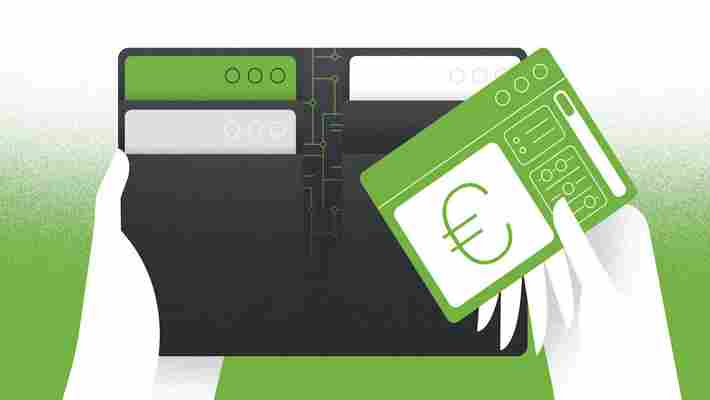Welcome to Moonday Mornings. Let’s not waste anytime, here’s the weekend’s top cryptocurrency and blockchain headlines you can’t afford to miss.

1. With every passing week the outlook for Facebook’s ‘cryptocurrency’ Libra looks worse and worse . After meeting with Suisse financial regulators last week concerns still remain for representatives of the US Financial Services Committee. “My concerns remain with allowing a large tech company to create a privately controlled, alternative global currency,” chariwoman Maxine Waters said in a statement yesterday. The fight’s not over for Libra yet.
2. Cryptocurrency mining mainstay Bitmain Technologies has allegedly placed an order for 600,000 mining chips, The Block reports . The mining chips are estimated to bring in up to $1.2 billion in profit to the mining hardware manufacturer.
3. Two Canadian nationals have been indicted for planning to steal Bitcoin. Karankit and Jagroop Singh Kkatkar from Surrey in British Columbia, claimed to work for cryptocurrency exchange HitBTC in an attempt to steal users’ login details. Coindesk reports the pair created a fake Twitter account called @HitBTCAssist posing as technical support for the exchange of the same name. The pair were able to extract over $233,000 worth of Bitcoin from on victim’s account.
4. Cryptocurrency exchange Binance has said it will give users affected by the alleged KYC document leak earlier this month VIP accounts. While the investigation is still on going, the exchange has said that some leaked images match ones that were processed by a third-party used by Binance between December 2017 and February 2018. I guess that’s one way to say sorry.
5. The worker who surreptitiously used a nuclear power plant in Ukraine to mine cryptocurrency will be forced to pay for the stolen electricity, according to the Telegraph . The individual identified to be running the illicit mining operation has also been demoted. It’s not clear if they were allowed to keep any cryptocurrency that might have been mined.
Well there it is, another weekend’s headlines caught up with. Now get back to whatever it is you do with your life.
15 nations are reportedly banding together to monitor suspect cryptocurrency transfers
Some 15 countries, including Australia and Singapore , are reportedly banding together to create a data collection and sharing system on individuals carrying out cryptocurrency transactions.

According to Nikkei , the common goal would be to prevent funds from being laundered or used to finance terrorist organizations .
The system will be designed by the Financial Action Task Force , an organization spanning across more than 30 member countries tasked with combatting money laundering, and the objective is to establish detailed measures by 2020.
It is hoped the system, which will be operated by the private sector, will be active a few years later.
Regulators and governments across the globe have been struggling to deal with the rapid rise of cryptocurrency ever since Bitcoin first burst on the scene some 10 years ago.
Japan , the home of now-defunct Mt. Gox , was actually the first nation to introduce a legal framework to deal with cryptocurrency exchanges in 2017. A year later it granted the industry self-regulatory status. However, the lack of universal standards has proved challenging for governments .
It seems the timing for this announcement couldn’t be better, given the US Treasury has expressed “serious concerns” about Facebook ‘s upcoming ‘ cryptocurrency ‘ Libra being used for terrorism.
Just got some Bitcoin: how to choose your first cryptocurrency wallet
So you’ve entered the world of crypto, have bought your first Bitcoin and want to know how you should choose your first cryptocurrency wallet.

For seasoned cryptocurrency investors this may seem obvious, but for a newbie who’s keen to get involved, it can seem like a daunting task. With so many options available, what’s the best answer? There is no hard and fast rule. At the end of the day it simply comes down to personal preference, but here are some tips to bear in mind.
A cryptocurrency wallet is, essentially, a software program that stores private and public keys, enabling users to send and receive cryptocurrency at the press of a button. It can be considered a misnomer as the coins aren’t stored in the wallet, but permit a person to interact with the blockchain when transactions are being made.
The first thing to understand is that there are three ways a person can store their cryptocurrency: hardware wallets, software wallets, and custodial wallets.
There’s also storage to think about, which can either be hot or cold. Hot storage is when a user’s coins are stored online and may be susceptible to hacking, whereas cold storage is taking a person’s coins and maintaining the security of them offline.
So let’s take a look at the three different types of wallets available.
Custodial wallets
These types of wallets store the private keys of its users through a third party. If someone is first starting out in crypto they are likely to use a custodial wallet.
San Francisco-based crypto exchange Coinbase and Hong Kong-based Bitfinex, a crypto trading platform, are examples of custodial wallets. If you buy crypto on these platforms they also provide users with a wallet in which to store your funds.
A few advantages to custodial wallets is that a user doesn’t need to worry about remembering their private key; all they have to do is remember their login details to the platform. Another benefit is that a person can manage their funds quickly and simply.
However, while they may be easy to use, a person doesn’t have full control over their funds, as the exchange manages them. Custodial wallets are also typically hot wallets.
Yet, while these wallets don’t give full control to users, they can offer a high level of security compared to others. That being said, if a large amount of crypto is stored in these wallets they can be a magnet to hackers. If such a hack takes place and your funds are stolen then there’s no way to retrieve them.
Software wallets
Based on computer software, software wallets are largely accessible anywhere. Available in three formats: desktop, mobile, and online, they are simple to use and provide an array of options depending on the device you use the most.
Let’s break software wallets down even further.
Desktop wallets : These are, essentially, wallets that are solely stored on a person’s laptop or PC. One of the main benefits to desktop wallets is that they don’t rely on a third party and a user has complete control of their funds.
However, on the flip side, security is down to each individual person. So, if the device doesn’t have the latest security procedures in place or isn’t protected against viruses or hacking then the computer may be hacked or compromised, resulting in the loss of a person’s coins forever.
Similar to custodial wallets, desktop wallets are a type of hot wallet.
Examples of software wallets include ArcBit, BitGo, Electrum, and Exodus.
Mobile wallets : These function through an app on your phone, and deliver quick and easy access when needed.
A person’s private keys are stored on the app, enabling purchases to be made through the phone. With more people using their smartphones for day-to-day expenses, the use of mobile wallets may see a steady increase.
For some, smartphones provide the best security for cryptocurrency. However, if a person’s phone is stolen and access is gained then their funds may be at risk of theft. Similar to a desktop wallet, they are only secure as long as steps have been taken to ensure this is the case.
One example of a mobile wallet is eToro’s crypto wallet . Rolled out last November for Android and iOS, it initially provides support for Bitcoin, Ethereum, Bitcoin Cash, and Litecoin. It’s planning to support more in the near future.
Other examples of mobile wallets include Airbitz, Breadwallet, eToro, Jaxx, and Mycelium.
Online : As these are web-based wallets, they can be accessed anywhere and on any device.
These are another convenient source to use; however, one disadvantage to these is that a person’s private keys are stored by a third party rather than on the device used. As such, a level of trust is required in the owners as well as their level of security. This, in turn, could make them vulnerable to hacking.
Examples of online wallets include BTC Wallet, Coinbase, OpenLedger, and Xapo.
Hardware wallets
With a person’s cryptocurrency stored offline, hardware wallets provide the most secure way to store funds.
A hardware wallet is a physical device with the sole purpose of storing a person’s private and public keys. This is similar to a USB device. As it’s never connected to the internet (unless a transfer needs to be made) there’s no way that it will become vulnerable to potential hackers.
In order to use a hardware wallet, a user simply plugs it into their computer, enters a pin, sends the required currency, and confirms the amount they want to transfer. By entering a person’s private key into the device they never have to reveal it on their computer.
What’s more, if the hardware is broken or lost, a person can upload their funds to a new device with the use of seed words received with the hardware wallet that restores their funds.
Examples of hardware wallets include KeepKey, Ledger Blue, Ledger Nano S, and Trezor.
When it comes to choosing your first cryptocurrency wallet there is no clear answer. At the end of the day, it will come down to what you require the most: security, convenience or ease of use.
Depending on how you use your cryptocurrency, how much you own, and how you plan on storing it will play a major role. If you think you’ll eventually own a significant amount then a hardware wallet may be the ideal choice, but if you want something to spend as and when needed then maybe a mobile wallet is the answer.
Before choosing one, though, make sure to conduct your own research to make sure the one you pick is the right choice.











